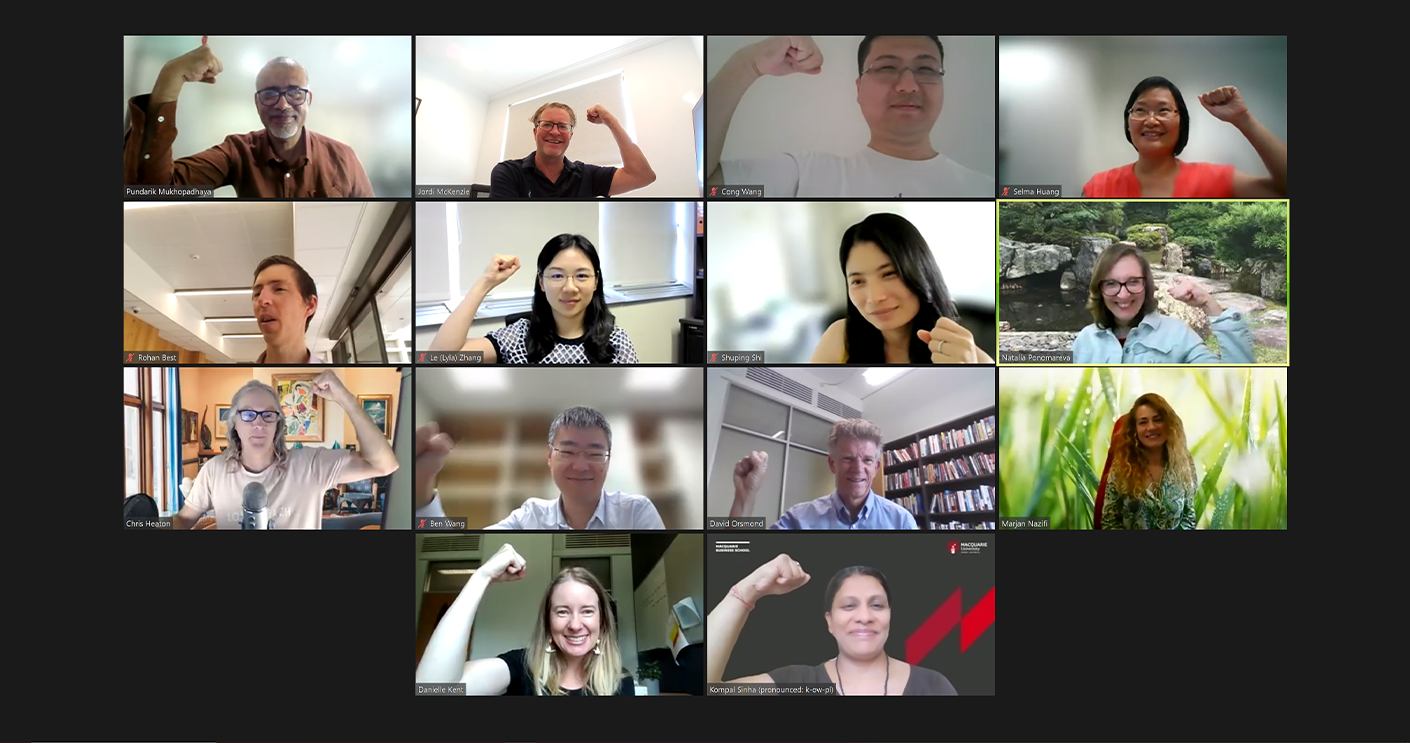It has been more than five months since Macquarie University became the first Australian University to achieve its FlexReady Extended Level Certification, signalling it as a desirable employer for flexible work.
Teams across the University have implemented the Flexible Work Framework in their own way, and one team has turned to basic economic principles to find the best way to Flex and optimise their work.
Guided by their Flex Champion, Associate Professor Jordi McKenzie, the team in the Department of Economics has found that flexible work is not a one-size-fits-all prospect.
McKenzie explains: “We know each individual looks at the costs and benefits of their own working arrangement to arrive at their optimal choice. And we also know that there are externalities to consider when working as part of a team. Externalities are the spillover benefits or costs that extend to a third party not directly involved in a transaction or decision. In the workplace, this could be the impromptu ‘water cooler’ conversations that result in a research collaboration or innovative teaching idea.”

Pictured: Members of the Department of Economics meeting in person for a Christmas lunch late last year
By using the University’s ‘Flex in Five Steps’ guidelines, the team “shifted to a new steady equilibrium” of flexible work. They started with steps 1 and 2, finding time in their department meetings to establish a shared understanding of flexibility concepts and discuss the needs of the team. Moving to step 3 (agree new ways of working ) the team decided that in order to enhance externalities, it was beneficial to designate preferred days on campus and they agreed the best days for them were Tuesday, Wednesday and Thursday, with Thursdays being their seminar day and the one day that most of the team will likely be working on campus. In line with step 4 (use enabling tools) and step 5 (review and adapt) the team is evolving with new technologies, but McKenzie admits they are “still not at the point where all Zoom meetings run smoothly without someone being told, ‘You’re on mute!’”.

Pictured: Members of the Macquarie Business School’s Department of Economics flexing their Flex muscles over Zoom
The Flexible Work Framework has allowed team members to enjoy the things that matter most while still performing at work. Economics lecturer Dr Danielle Kent said: “My little girl started school this week and being flexible at work has really allowed me to be present for key milestones and enjoy this precious time.”
Flexible work has also improved productivity within the team, as Dr Rohan Best, Senior Lecturer, explained: “Flexible working opens opportunities for overcoming logistical challenges. One example is the opportunity to attend overseas conferences while still joining Macquarie meetings via Zoom. Flex work styles fit well with the academic context of looking for new ways to get the most productive outcomes”.
Share your Team’s flexible working story in the comments below.


 Back to homepage
Back to homepage
Comments
We encourage active and constructive debate through our comments section, but please remain respectful. Your first and last name will be published alongside your comment.
Comments will not be pre-moderated but any comments deemed to be offensive, obscene, intimidating, discriminatory or defamatory will be removed and further action may be taken where such conduct breaches University policy or standards. Please keep in mind that This Week is a public site and comments should not contain information that is confidential or commercial in confidence.